Federal and Private Student Loans: Which is Right for You in 2025?
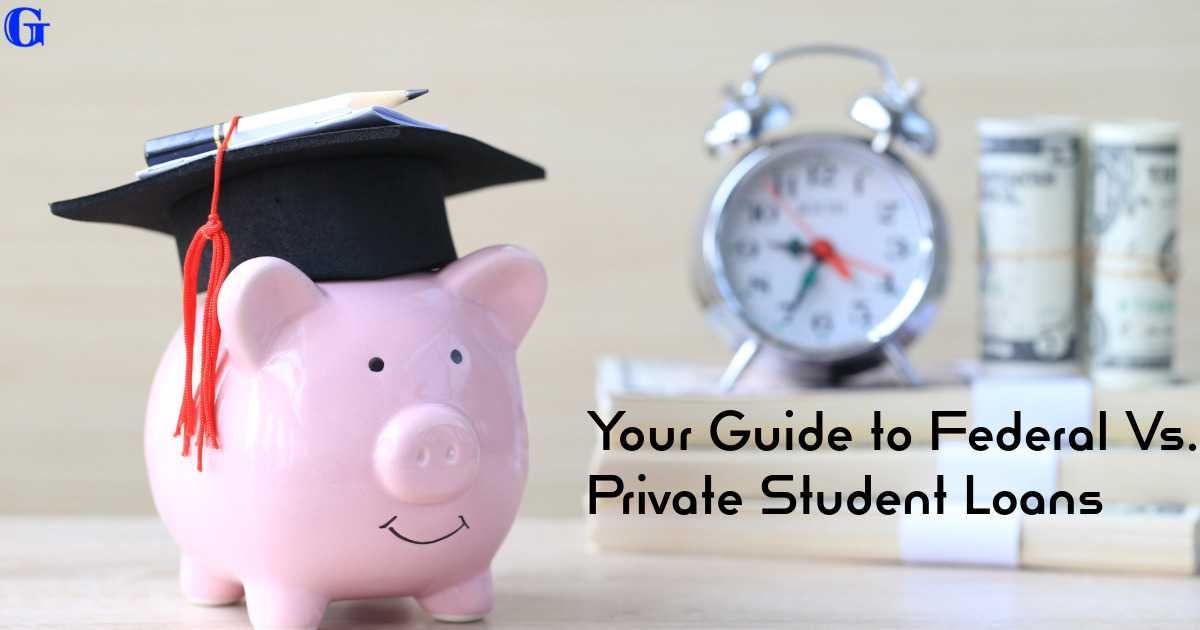
Table of Contents
A Guide to Federal and Private Student Loans
Introduction
Navigating the complexities of student loans can feel like a daunting task. With a range of options available, understanding the nuances between Federal and Private Student Loans is crucial for making informed financial decisions that won’t weigh you down for years to come. This guide will provide you with a comprehensive overview, exploring key features, advantages, and potential pitfalls of each type, empowering you to make the most informed choice for your unique educational journey.
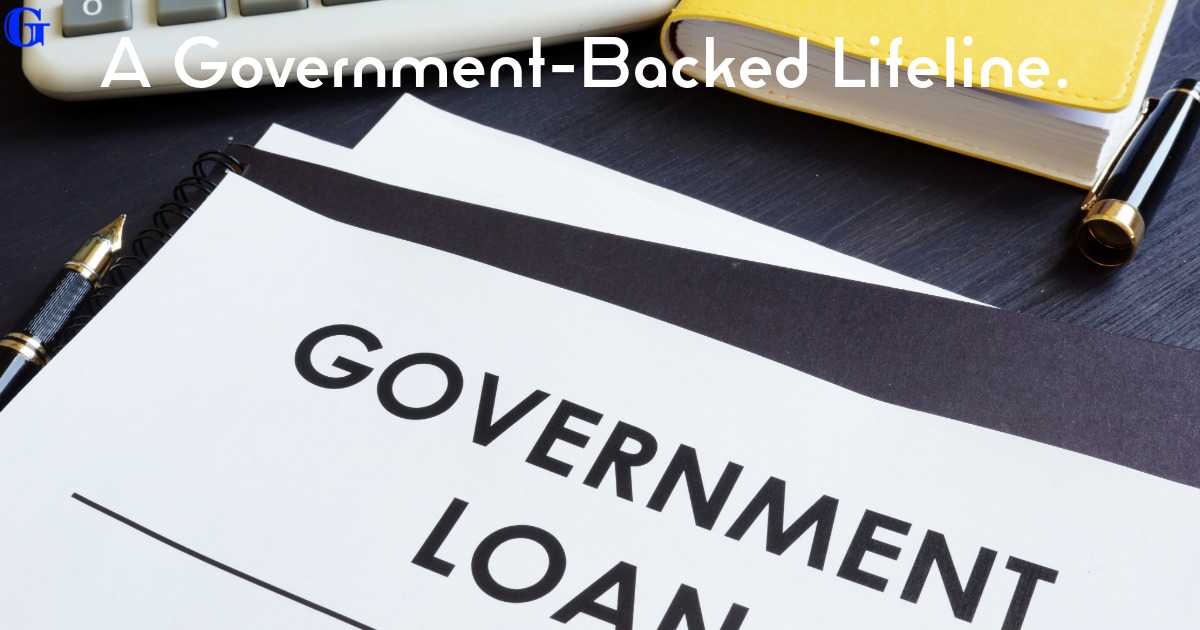
1) Federal Student Loans: A Government-Backed Lifeline
Federal Student Loans are a cornerstone of financial aid for many students. Offered by the U.S. Department of Education, these loans are generally considered more borrower-friendly due to their inherent protections and flexible repayment options.
1.1 Types of Federal Student Loans:
- Subsidized Loans: Primarily for undergraduate students with financial need. A key advantage is that the government pays the interest on these loans while you’re in school, during grace periods, and during approved deferment periods.
- Unsubsidized Loans: Available to undergraduate, graduate, and professional students. Interest accrues on these loans throughout all periods, including while you’re in school.
- Direct PLUS Loans: Designed for graduate and professional students, as well as parents of dependent undergraduate students. Credit checks are typically required.
1.2 Key Features and Benefits:
- Lower Interest Rates: Typically offer more favorable interest rates compared to Private Student Loans.
- Flexible Repayment Plans: A wide array of repayment plans cater to diverse financial situations, including:
- Standard Repayment Plan: Fixed monthly payments over 10 years.
- Graduated Repayment Plan: Lower initial payments that gradually increase over a 10-year period.
- Income-Driven Repayment Plans (IDRs): Base monthly payments on your income and family size. Options include Income-Based Repayment (IBR), Pay-As-You-Earn Repayment (PAYE), and Revised Pay-As-You-Earn Repayment (REPAYE).
- Forgiveness Programs: Opportunities for loan forgiveness exist, such as the Public Service Loan Forgiveness (PSLF) program for those employed in public service.
- Borrower Protections: Robust protections are in place, including:
- Deferment: Allows temporary postponement of loan payments under certain circumstances (e.g., unemployment, enrollment in school).
- Forbearance: Grants temporary reduction or suspension of loan payments, often with accruing interest.
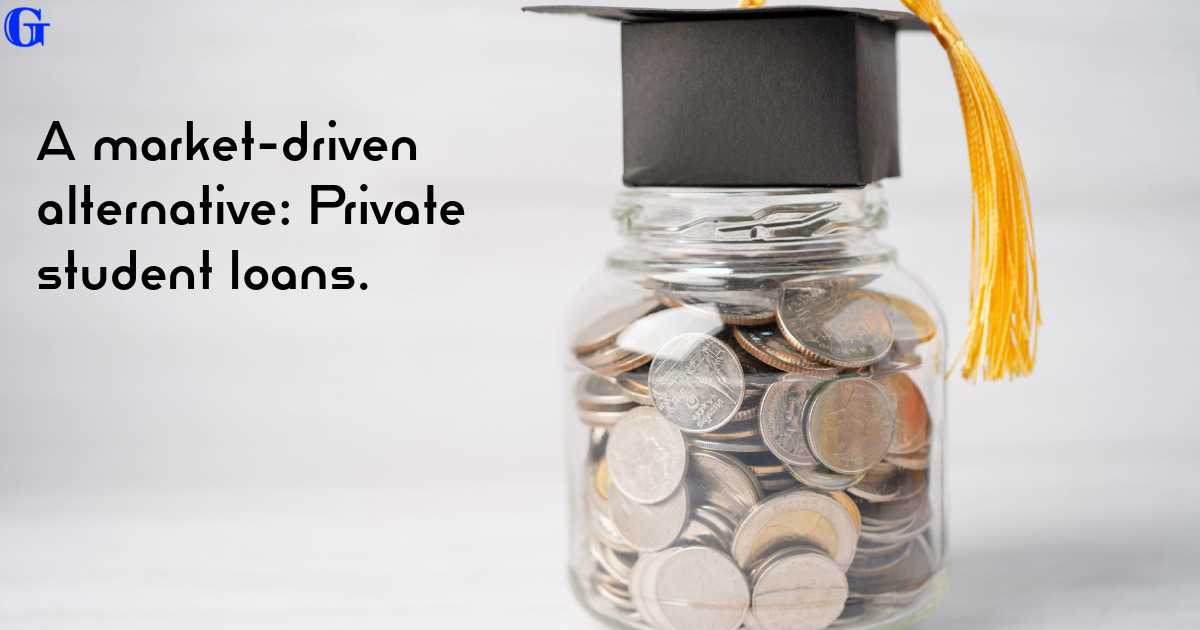
2) Private Student Loans: A Market-Driven Alternative
Private Student Loans are offered by private lenders, such as banks, credit unions, and online lenders. While they can offer higher borrowing limits, it’s crucial to carefully weigh the potential benefits against the associated risks.
2.1 Key Features and Considerations:
- Higher Interest Rates: Typically carry higher interest rates than Federal Loans.
- Variable or Fixed Interest Rates: Be mindful of interest rate types. Variable rates can fluctuate, potentially increasing your monthly payments over time.
- Cosigner Requirements: Often require a creditworthy cosigner (e.g., parent, relative) to qualify for the loan. This exposes the cosigner to potential financial risk.
- Limited Repayment Options: Repayment options may be less flexible compared to Federal Loans.
- Fewer Borrower Protections: Generally offer fewer borrower protections than Federal Loans.
2.2 Potential Benefits:
- Higher Borrowing Limits: Can be beneficial for students with significant educational expenses not covered by Federal Loans.
- Credit Building: Making on-time payments can help improve your credit score.
Read about how to buy essays online on our blog.
3) Choosing the Right Path: A Decision-Making Framework
Selecting the best type of student loan requires careful consideration of your individual circumstances:
- Exhaust Federal Loan Options: Prioritize utilizing Federal Loans to the maximum extent possible, given their generally more favorable terms.
- Compare Interest Rates: Carefully compare interest rates from both Federal and Private lenders.
- Assess Repayment Options: Evaluate the flexibility and long-term implications of different repayment plans.
- Understand Borrower Protections: Thoroughly review the available borrower protections for each loan type.
- Seek Financial Advice: Consult with a financial advisor or student loan counselor to discuss your options and create a personalized financial plan.
4) Strategies for Managing Student Loan Debt
Effectively managing student loan debt is crucial for long-term financial well-being:
- Create a Budget: Develop a detailed budget to track income and expenses, identifying areas for potential cost-cutting.
- Prioritize On-Time Payments: Make consistent, on-time payments to avoid late fees and penalties, which can significantly impact your overall debt burden.
- Explore Repayment Plan Options: Investigate different repayment plans to find the one that best aligns with your current financial situation and long-term goals.
- Consider Loan Forgiveness Programs: Research and explore potential eligibility for loan forgiveness programs, such as the PSLF program.
- Seek Professional Help: If you’re struggling to manage your student loan debt, don’t hesitate to seek guidance from a credit counselor or financial advisor.
5) The Importance of Financial Literacy
Understanding the intricacies of student loans is an essential component of financial literacy. By educating yourself on the available options and making informed decisions, you can minimize the long-term impact of student loan debt on your financial future.
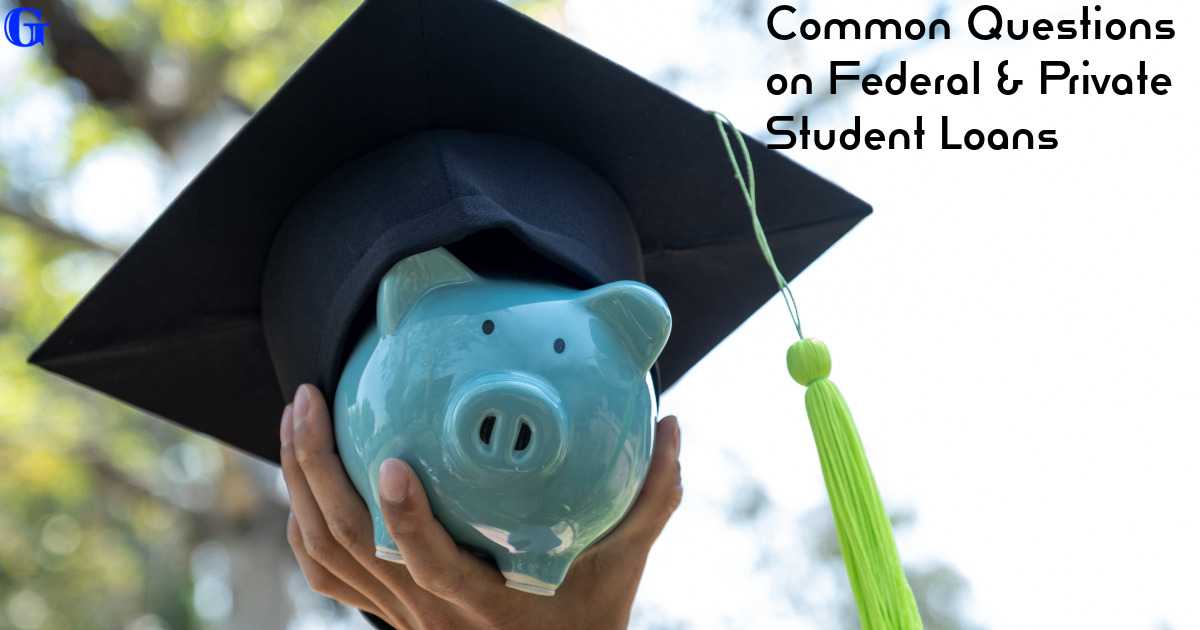
FAQs about Federal and Private Student Loans
What are the different types of student loans available?
- Federal Student Loans:
- Subsidized Loans: For undergraduate students with financial need. Interest is paid by the government while the student is in school.
- Unsubsidized Loans: Available to undergraduate, graduate, and professional students. Interest accrues throughout all periods.
- Direct PLUS Loans: For graduate and professional students, and parents of dependent undergraduate students. Credit check required.
- Private Student Loans: Offered by private lenders (banks, credit unions). Higher interest rates, variable or fixed rates, may require a cosigner.
Which is better, a federal or a private student loan?
- Federal: Generally more borrower-friendly (lower interest rates, flexible repayment, borrower protections).
- Private: Can offer higher borrowing limits, but often have higher interest rates, fewer protections, and may require a cosigner.
Types of Private Student Loans
- Variable Rate: Interest rate fluctuates with market changes.
- Fixed Rate: Interest rate remains the same throughout the loan term.
Pros and Cons of Private Student Loans
- Pros: Higher borrowing limits, potential for credit building.
- Cons: Higher interest rates, fewer borrower protections, may require a cosigner, limited repayment options.
Is Taking a Private Student Loan a Good or Bad Idea?
- Depends: Exhaust Federal options first. Compare interest rates carefully. Consider repayment options and borrower protections. Seek financial advice.
Is it better to get a student loan or a parent loan?
- Student Loan: May offer more flexible repayment options, potential for loan forgiveness.
- Parent Loan: May have lower interest rates, but places the financial burden on the parent.
Should You Avoid Private Student Loans?
- Not necessarily: They can be a viable option if Federal options are insufficient and you understand the risks.
What Student Private Loans are Best?
- Depends on individual needs: Research lenders, compare rates and terms, and choose a loan that aligns with your financial situation.
How Expensive are Student Loans?
- Varies greatly: Depends on the type of loan, interest rate, and borrowing amount.
How should I manage student loans?
- Create a budget: Track income and expenses.
- Make on-time payments: Avoid late fees and penalties.
- Explore repayment options: Consider income-driven repayment plans.
- Research loan forgiveness programs: See if you qualify for any debt relief.
- Seek professional help: Consult with a credit counselor or financial advisor.
Are Graduate Student Loans Worth It?
- Depends on the degree and potential return on investment: Consider the cost of the program, potential earning power, and long-term career goals.
How are unsubsidized and subsidized loans different?
- Subsidized: Interest paid by the government while in school.
- Unsubsidized: Interest accrues during all periods, including while in school.
How to Apply for a Student Loan or Financial Aid
- Complete the Free Application for Federal Student Aid (FAFSA): This form determines your eligibility for Federal aid.
Read about how to structure a college-level essay on our blog.
Is it Possible to Short the Student Loan Bubble?
- Complex issue: No easy solution. Potential approaches include:
- Increased government funding for education: Making college more affordable.
- Loan forgiveness programs: Targeted relief for specific groups.
- Reforming student loan interest rates: Lowering costs for borrowers.
What is your opinion on student loans?
- Student loans can be a valuable tool for accessing education, but also pose significant financial risks. It’s crucial to borrow responsibly, understand the terms and conditions, and explore all available options before making a decision.
Is Interest Added to Your Student Loan in USA?
- Yes: Interest accrues on most student loans, even during periods of deferment or forbearance (though it may not be capitalized immediately).
Is it Possible to Survive College Without Student Loans?
- Yes:
- Scholarships and grants: Explore merit-based and need-based aid.
- Work-study programs: Earn income while attending college.
- Community college: Lower tuition costs, potential for transferring credits.
- Living at home: Reduce living expenses.
- Saving money: Start saving early for college costs.
Is Federal Student Loan Forgiveness on a Large Scale Realistic?
- Politically and economically complex: Large-scale forgiveness would have significant budgetary implications.
Are there any alternatives to taking out a student loan?
- Scholarships and grants: Merit-based, need-based, and employer-sponsored.
- Work-study programs: Earn income while attending college.
- Saving money: Start saving early for college costs.
- Community college: Lower tuition costs, potential for transferring credits.
- Living at home: Reduce living expenses.
Are Loans Considered Financial Aid?
- Yes: Student loans are considered a form of financial aid, but they require repayment with interest.
Can Colleges Block a Student Loan if it’s Too Big?
- No: Colleges cannot directly block a student loan. However, they may provide their own financial aid packages that may be affected by the amount of outside borrowing.
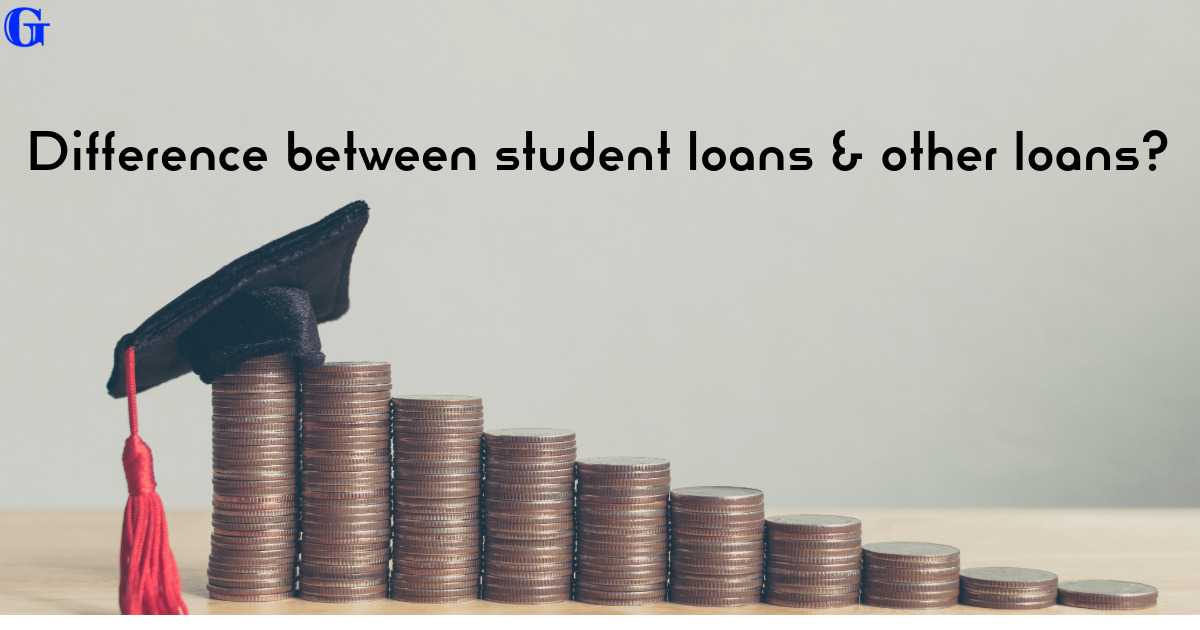
How are Student Loans Different from Other Loans?
- Repayment options: More flexible repayment plans are often available for student loans.
- Borrower protections: Stronger protections, such as deferment and forbearance.
- Potential for loan forgiveness: Certain professions or circumstances may qualify for loan forgiveness programs.
What are the Best Student Loans to Pay for College?
- Prioritize Federal Loans: Generally offer more favorable terms.
- Explore Private Loans only if necessary: After exhausting Federal options.
Can I Get a Student Loan in My Thirties?
- Yes: You can still qualify for Federal and Private Student Loans as an adult student.
How to Pay Back Student Loans if I Didn’t Complete a Degree?
- Repayment options still apply: You are still obligated to repay the loan. Explore income-driven repayment plans or consider loan consolidation.
How to Get Student Loans Without My Parents as a Cosigner?
- Build strong credit: Establish and maintain a good credit history.
- Demonstrate strong academic performance: Maintain a high GPA.
- Find a cosigner with excellent credit: If necessary, explore alternative options.
Should Taxpayers Just Give in and Pay Off Student Loans?
- Complex issue: Large-scale loan forgiveness would have significant economic and political implications.
When is the Earliest Date to Apply for FAFSA?
- October 1st of the year prior to the academic year you plan to attend.
How to Apply for a Student Loan or Financial Aid
- Complete the FAFSA: Free Application for Federal Student Aid.
- Submit required documents:
- FAFSA: Online or paper application.
- Supporting documentation: Tax returns, income information, etc.
How Late is Too Late for Filling Out the FAFSA?
- State and school deadlines vary.
- Federal deadline: June 30th of the following year (for most states).
At 67, Can I Apply for the FAFSA?
- Yes: You can still apply for the FAFSA if you are a dependent student or if you are an independent student pursuing a degree or certificate.
Should I File my FAFSA if I’m Graduating this Year?
- Yes: Even if you are graduating, you may still be eligible for certain types of aid.
Where did you apply for student loans?
- Federal Student Aid website (for Federal Loans)
- Private lenders (banks, credit unions, online lenders)
Read about how to write a critical analysis essay on our blog.
Can I get FAFSA if my parents make a lot of money?
- Yes: You may still be eligible for Federal aid, even if your parents have a high income, depending on your individual circumstances and dependency status.
Does my college take a percentage of my FAFSA money?
- No: Colleges do not directly take a percentage of your FAFSA funds. However, they use the information from the FAFSA to determine your eligibility for their own financial aid packages.
Do I need to complete FAFSA if I’m rich?
- Yes: Even if you believe you may not qualify for need-based aid, completing the FAFSA is still recommended. You may be eligible for other types of aid, such as work-study or Federal loans.
Do students get the same amount of financial aid every year?
- No: The amount of financial aid can vary each year based on factors such as your income, dependency status, and academic performance.
What is the age someone usually pays off his student loan?
- Varies greatly: Depends on the loan amount, interest rate, repayment plan, and individual financial circumstances.
- Average: Can range from 10-20 years or even longer.
How to find a person online to co-sign my student loan?
- Discuss with trusted family members or close friends: Explain the responsibilities and risks of cosigning.
- Use online cosigner matching platforms: Some platforms connect borrowers with potential cosigners.
Does it take a while for Sallie Mae loans to approve?
- Processing times can vary: Factors influencing approval time include the completeness of your application, credit history, and income verification.
Is it good to pay off student loans in full?
- Generally yes: Paying off student loans early can save you money on interest and provide financial peace of mind. However, consider your overall financial situation and prioritize other financial goals (e.g., emergency fund, retirement savings).
At what point do people finish paying off their student loans?
- Varies greatly: Depends on the factors mentioned in question 38.
Why is student loan repayment so difficult and expensive?
- High interest rates: Can significantly increase the overall cost of borrowing.
- Rising tuition costs: Increasingly expensive college education contributes to higher debt burdens.
- Limited repayment options: Some borrowers may struggle to find repayment plans that fit their income and financial situation.
- Job market challenges: Difficulty finding stable, well-paying jobs can make it challenging to afford monthly payments.
Is the US student loan system unfair?
- Debatable: Arguments for unfairness:
- Progressive taxation: Lower-income borrowers may struggle more to repay debt.
- Limited access to affordable education: High tuition costs contribute to the problem.
- Arguments against unfairness:
- Opportunity for upward mobility: Education can lead to higher earning potential.
- Availability of government assistance: Federal aid programs and income-driven repayment plans provide support.

Are student loans different in the UK vs. US?
- Yes:
- UK:
- Tuition fees are generally higher.
- Student loans are typically interest-free while studying and during a grace period.
- Repayment is based on income after graduation.
- US:
- More diverse range of loan options (Federal, Private).
- Interest accrues on most loans during all periods.
- Repayment options vary widely.
- UK:
What is an income-driven repayment plan?
- Based on your income and family size: Monthly payments are adjusted to a percentage of your discretionary income.
Is there a penalty for paying off federal student loans early?
- No: There is no penalty for paying off Federal student loans early.
How to pay my student loans while on a postdoc project?
- Explore income-driven repayment plans: Adjust payments based on your lower income during the postdoc period.
- Deferment or forbearance: Consider temporary deferment or forbearance options if available.
- Part-time employment: Consider part-time work to supplement income.
I’m $90k under student debt. How do I pay it back?
- Create a budget: Track income and expenses.
- Explore repayment options: Consider income-driven repayment plans, refinancing, or consolidation.
- Increase income: Seek higher-paying employment or explore side hustles.
- Reduce expenses: Identify areas where you can cut back on spending.
Learn more on semicolons and colons on our blog.
Can student loans be avoided if there is no income?
- No: You are still responsible for repaying student loans, even if you are unemployed or have low income. However, income-driven repayment plans can help make payments more manageable.
Is Sallie Mae a legit student loan?
- Yes: Sallie Mae is a well-known private student loan lender.
Are Sallie Mae loans considered federal loans?
- No: Sallie Mae loans are considered private student loans.
Is it better to consolidate or refinance student loans?
- Depends:
- Consolidation: Simplifies repayment by combining multiple loans into one.
- Refinancing: May lower your interest rate, but can be riskier (especially with variable rates).
Can the Federal Government forgive student loans?
- Yes:
- Limited programs: Such as Public Service Loan Forgiveness (PSLF) and income-driven repayment plans with potential for loan forgiveness after 20-25 years.
- Large-scale forgiveness: Politically and economically complex.
How to lower my interest rate on my student loans?
- Refinancing: Explore refinancing options with private lenders or the Federal Direct Loan program.
- Income-driven repayment plans: Some plans may offer lower monthly payments, but may extend the repayment term.
How long does it take to pay off $40,000 in student loans?
- Varies greatly: Depends on the interest rate, repayment plan, and amount of your monthly payments.
- Estimate: Could take 10-20 years or longer.
Should I refinance student loans or wait for forgiveness?
- Depends:
- Refinancing: May lower interest rates, but can be riskier.
- Forgiveness:
- Uncertain: Large-scale forgiveness is not guaranteed.
- May take many years: If relying on income-driven repayment plans with forgiveness options.
How long should your student loan term be?
- Consider your financial situation: Shorter terms generally result in higher monthly payments but lower overall interest costs. Longer terms have lower monthly payments but higher overall interest costs.
What are some ways to pay off private student loan debt?
- Budgeting and expense reduction: Identify areas to cut back on spending.
- Income-driven repayment plans: Explore options offered by your lender.
- Refinancing: Consider refinancing with a lender that offers lower interest rates.
- Side hustles: Explore part-time work or freelance opportunities to increase income.
What can I do about my defaulted student loans?
- Contact your lender: Discuss options for repayment, such as rehabilitation or consolidation.
- Seek credit counseling: A credit counselor can help you develop a repayment plan and explore options for resolving your defaulted loans.
Should I get a private student loan to pay for my education?
- Exhaust Federal options first: Only consider Private Loans if absolutely necessary.
Should I take out student loans to pay off a credit card?
- Generally not recommended: Student loans typically have higher interest rates than many credit cards.
How do you apply for a student loan with no credit?
- Find a cosigner: A cosigner with good credit can help you qualify for a loan.
- Explore Federal options: Some Federal loans may have more flexible credit requirements.
What happens if you stop making student loan payments?
- Late fees and penalties: You will be charged late fees and penalties.
- Damage to credit score: Your credit score will be negatively impacted.
- Wage garnishment: Your wages may be garnished to repay the debt.
- Lawsuit: Your lender may take legal action against you.
Am I responsible for my spouse’s student loan debt?
- Generally not: You are not automatically responsible for your spouse’s student loan debt. However, if you cosigned on the loan, you are legally obligated to repay it.
What happens if you ignore student loans?
- See question 64: Ignoring student loan payments will have serious consequences, including damage to your credit score, wage garnishment, and potential legal action.
Is it possible to go broke from paying off student loans early?
- Unlikely: Paying off student loans early can save you money on interest. However, ensure you maintain an emergency fund and prioritize other financial goals.
How does your credit score affect your student loan?
- Creditworthiness: A good credit score can help you qualify for lower interest rates and better loan terms.
Does taking out student loans lower your credit score?
- Not necessarily: Taking out a student loan itself does not directly lower your credit score. However, late or missed payments can significantly damage your credit.
How long does a student loan affect a student’s credit score?
- As long as the loan is open: Your credit score will be affected as long as the loan remains on your credit report.
Does paying off a student loan lower your credit score?
- No: Paying off a student loan will not directly lower your credit score. In fact, it can have a positive impact by demonstrating responsible credit management.
Can student loans drop a credit score?
- Yes:
- Late or missed payments: Can significantly damage your credit score.
- Defaulting on the loan: Can have a severe and long-lasting negative impact on your credit score.
What are guaranteed approval student loans I can get?
- No guaranteed approval student loans exist: All student loans require some level of creditworthiness or a cosigner.
What are the pros and cons of Discover student loans?
- Pros: Competitive interest rates, cashback rewards program, customer service.
- Cons: May require a cosigner, limited repayment options compared to some Federal loans.
What’s the best way to detect scam student loan offers?
- Be wary of offers that seem too good to be true: Low or no interest rates, guaranteed approval, etc.
- Research the lender: Verify the legitimacy of the lender through official sources.
- Never share personal information with unsolicited callers or emails.
- Contact your school’s financial aid office: Seek guidance from trusted sources.
Can a credit repair company remove student loans?
- No: Credit repair companies cannot legally remove legitimate student loan debt from your credit report.
How can someone be forgiven their federal student loans?
- Public Service Loan Forgiveness (PSLF): For those employed in public service.
- Income-Driven Repayment (IDR) plans: Potential for forgiveness after 20-25 years of qualifying payments.
- Teacher Loan Forgiveness: For teachers employed at low-income schools.
- Other programs: Limited programs for specific professions or circumstances.
Do you have to pay back student loan from fafsa?
- Yes: Federal student loans obtained through the FAFSA must be repaid with interest.
Will FAFSA let me go to school somewhere international?
- No: The FAFSA is primarily for U.S. colleges and universities.
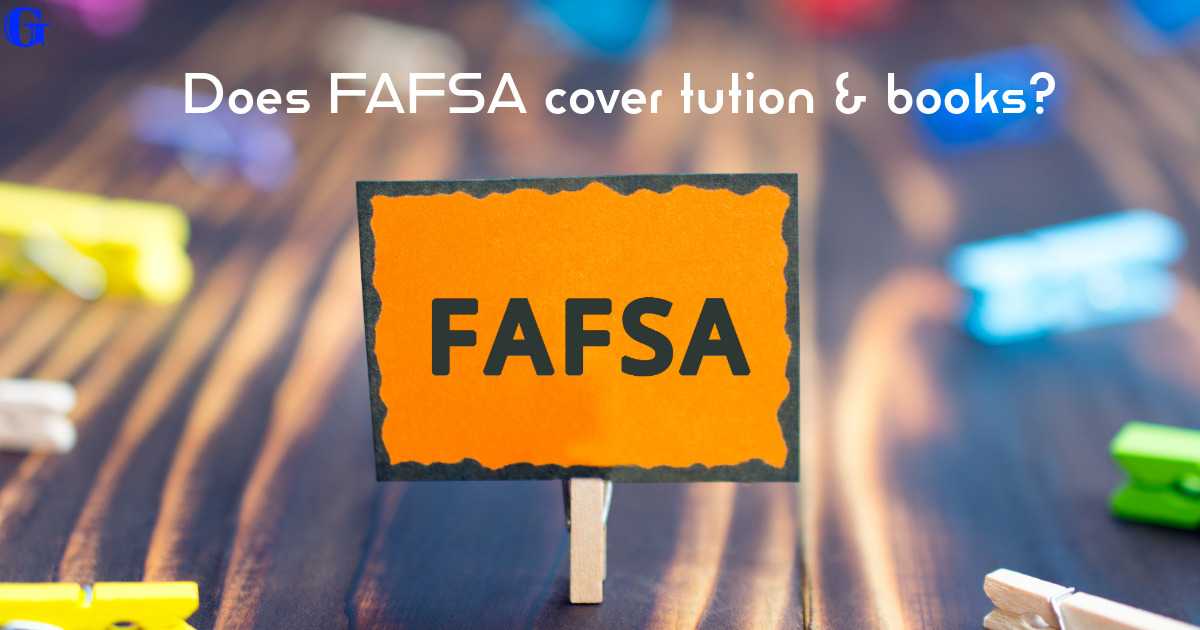
Does FAFSA cover tuition? Does financial aid cover books?
- FAFSA: Provides information used to determine eligibility for various types of aid, including grants, scholarships, and loans.
- Financial aid: Can cover tuition, fees, room and board, and other educational expenses, including books.
How to get financial aid for college as an adult?
- Complete the FAFSA: Even as an adult student, you can still apply for Federal aid.
- Explore scholarships and grants: Research and apply for scholarships and grants specifically for adult learners.
- Consider employer tuition assistance: If applicable.
What are the interest rates for private student loans?
- Varies greatly: Depends on the lender, creditworthiness, and type of loan (variable or fixed rate).
Are there any no-interest student loans?
- Limited options: Some private lenders may offer introductory periods with no interest, but these are typically short-term and may have other fees.
How would someone live off of student loans?
- Not recommended: Student loans are intended to help cover educational expenses, not living expenses.
- Prioritize essential needs: Focus on essential expenses (tuition, housing, food) and minimize non-essential spending.
Is there any student who gets 0% interest education loan?
- Limited options: Some Federal loans may offer 0% interest during certain periods (e.g., subsidized loans while in school). Some private lenders may offer introductory periods with no interest.
Does the president have authority to cancel student loans?
- Complex issue: The extent of the President’s authority to cancel student loans is a matter of ongoing debate and legal challenges.
What happens if I cannot repay my student loans in the US?
- See question 64: Consequences can include damage to credit score, wage garnishment, and legal action.
How does an education loan work in the United States?
- Borrow money to finance education: Repay the loan with interest over a set period.
How to get an international student loan in the USA?
- Research lenders: Some international banks and financial institutions offer student loans to international students in the U.S.
- Explore government-sponsored programs: Some countries may offer student loan programs for their citizens studying in the U.S.
Learn more on active and passive voice on our blog.
How can I get a student loan without a cosigner?
- Build strong credit: Establish and maintain a good credit history.
- Demonstrate strong academic performance: Maintain a high GPA.
- Explore Federal options: Some Federal loans may have more flexible credit requirements.
Conclusion:
Navigating the complexities of student loans requires careful planning and informed decision-making. Understanding the different types of loans, exploring all available options, and implementing effective debt management strategies are crucial for minimizing the long-term impact of student loan debt on your financial future. It’s essential to prioritize responsible borrowing, exhaust Federal options before considering Private Loans, and seek guidance from trusted sources when making important decisions. By taking proactive steps to manage your student loan debt, you can pave the way for a more secure and prosperous financial future.














